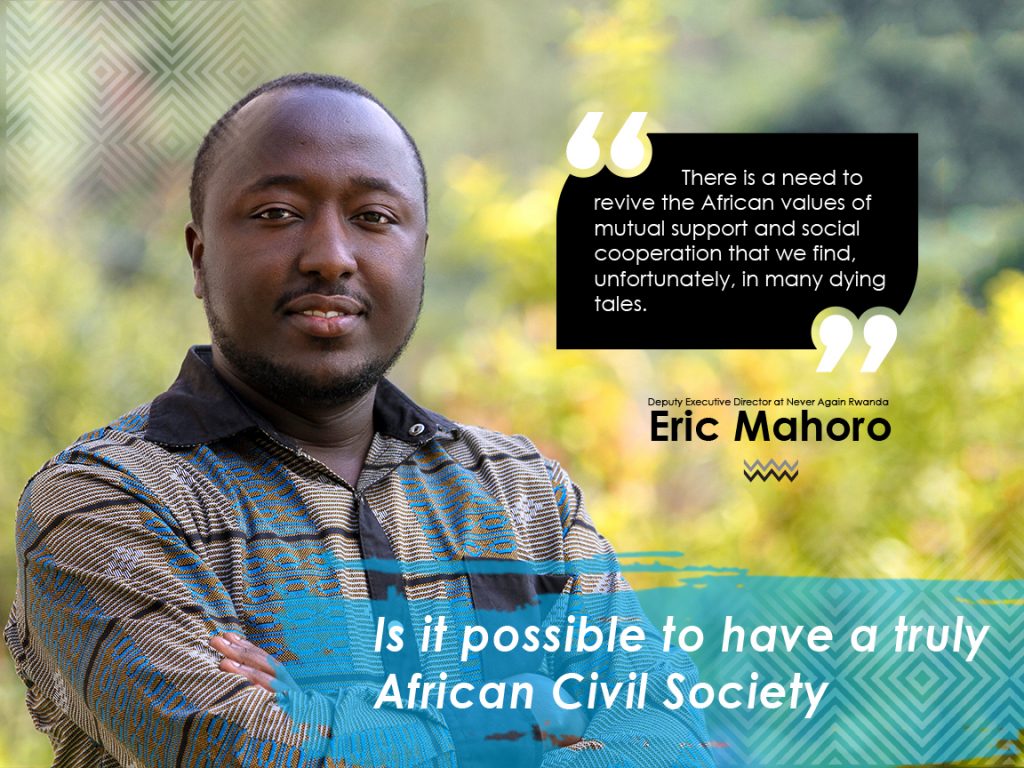Is it possible to build a truly African Civil Society?
In many African countries civil society organizations (CSOs), often referred to as non-governmental organizations (NGOs) or not-for-profit organizations are perceived as imported from the Western countries. Often, there is limited trust between these organizations and the governments of the countries in which they operate. This jeopardizes the contributions civil society makes in the development of their nations. Yet, research has demonstrated that CSOs are essential in bridging the gap between the communities and their governments either through service provision, shaping public policies, advocacy or citizenship education (NAR 2019).
In Rwanda for example, during the immediate post-genocide period, many NGOs contributed to the management of humanitarian crises which emerged after the 1994 genocide against Tutsi. Such organizations included international as well as national and community-based entities. Today when you travel around the country, you can tell from observing the sign-posts on public edifices or offices that such support has tremendously contributed to Rwanda’s great achievements and the ongoing healing and reconciliation process.
Civil society is largely perceived to be a vehicle for western agendas. As such, their loyalty and sustenance are highly dependent on conditions and directions laid down by drivers from the west. However, looking at the laudable contributions of CSOs, one may ask; how can we actually promote and sustain a civil society that is relatively African? And if that dream is to be achieved which role is whose?
There is a need to revive the African values of mutual support and social cooperation that we find, unfortunately, in many dying tales. If the CSOs are self-organized entities or implementing activities defined by the community members affected by a certain issue and willing to take action, then there is a need for governments to establish sound legal frameworks to regulate these structures without harming their original and voluntary nature.
Although it is essential to collaborate with multinational NGOs, it would be essential for countries to re-assess their own CSOs frameworks and facilitate citizen-driven initiatives and activities to take place. Equally, CSO should be guided to orient its contribution to the international and national development agendas which I believe are shared between the states and the CSOs. This would ultimately increase trust among such partners and the states.
In Rwanda, there is a progressive CSO law enacted in 2012. However, small community-based organizations (CBOs) still find it hard to be recognized in that legal framework, yet they are smaller but stronger (NAR 2019). Should the legal framework include CBOs, there could be an increased probability that locally initiated CSOs and, in fact, closer to the communities will find it easier to cooperate with governments in full trust.
It is also essential to develop partnerships with International NGOs either for funding or capacity building purposes. However, donors should understand that it is more sustainable to support local CSOs to grow and build systems that enable them to meet universal standards rather than invest extravagant budgets in the direct implementation of projects by the international NGOs. In the latter cases, frameworks should be elaborated to ensure continuous skills and capacity transfer to the local organizations so that they can take a lead in the long run.
Reference
Never Again Rwanda (NAR) & Interpeace (2019), The Role of Civil Society in Enhancing Citizen Participation in Governance and Development Processes in Post-Genocide Rwanda, NAR, Kigali.


